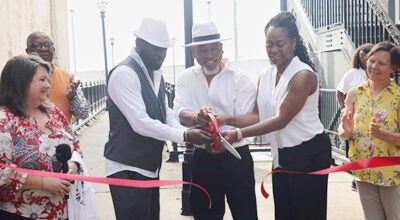The press is a powerful thing
Published 10:39 am Tuesday, October 6, 2015
Happy National Newspaper Week!
The Vicksburg Post has been running and will continue to run a series of articles this week that help illustrate this year’s theme: The Power of The Press.
After some reflection on this theme, I was reminded of several instances when I’ve seen just how powerful the press can be, for better or for worse.
I’ve seen the press do some pretty disruptive things, like the time I worked for my college newspaper and someone else on staff wrote a controversial column on the Trayvon Martin case that ended in death threats from across the Unites States and a police officer stationed outside of her house for protection.
Granted, most of the other memories I have of the power of the press are generally good ones.
For example, this summer the Salvation Army was tens of thousands of dollars in the red and at risk of closing its doors until December. After running a series of articles highlighting the contributions the organization makes in our community and addressing the need for money, donations came in and the Salvation Army’s doors are still open.
Captain Srikant Bhatnagar told me he thinks The Vicksburg Post is largely responsible for many of the donations that helped them keep their doors open.
The newspaper also has the ability to shine light on some of the best-kept secrets.
It was the great newspaperman William Randolph Hearst who once said, “News is something somebody doesn’t want printed; all else is advertising.”
The media is often referred to as the fourth estate, serving as an additional check and balance to the three branches of government.
From student government to city government, I’ve seen newspaper’s printed words expose lies, deceit and corruption and cause interesting consequences.
People actually read the newspaper, and not just the articles. When my mother last had opposition for her office, I can remember people stopping her to tell her they saw her ad in the paper. They would recall specific facts and use them to explain why they were voting for her.
As a child I couldn’t imagine anything I wanted to do less than read political ads. Now that I’m older, I couldn’t imagine not reading them.
People can say what they want about newspapers, but there’s no denying the power of the press.





